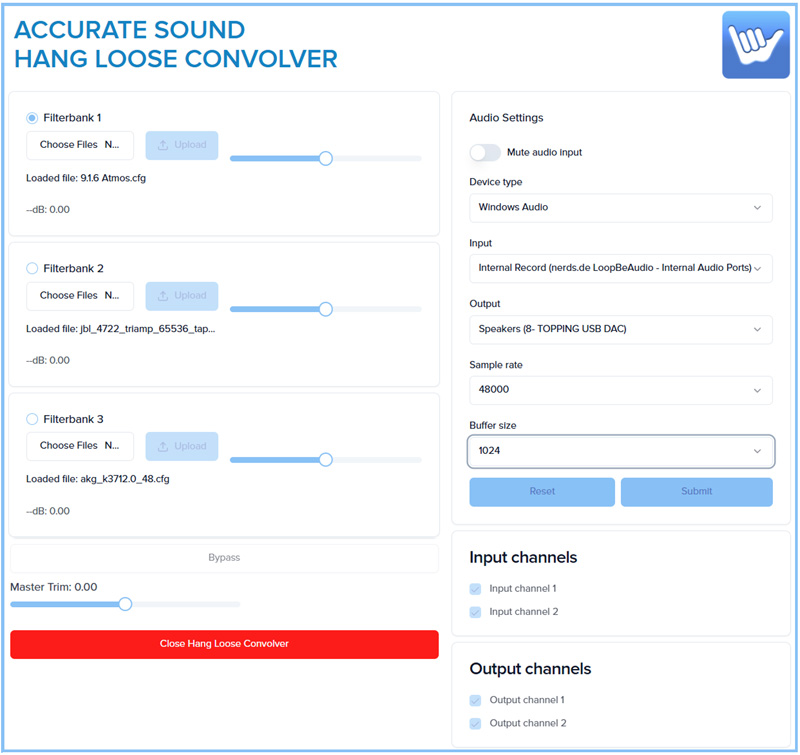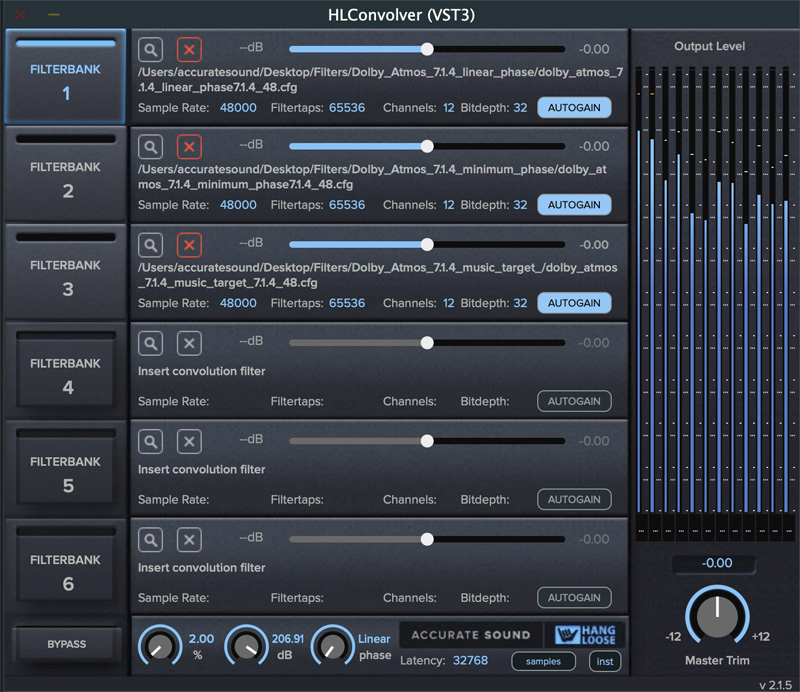A complete, high-resolution DSP solution for audio systems
HL-DSP-Suite includes HLHost (HLH) which can host any audio plugin, HLConvolver (HLC) as a convolution plugin, HLC as a standalone application that can run headless and be accessed via a web interface, and HLC Web API for custom control over HLC.
HL-DSP-Suite is a complete DSP solution for any audio system to perform high resolution DSP such as convolution, cross-talk cancellation, loudness control, parametric eq, or any type of stereo or multichannel digital audio signal processing in an easy to use and flexible multiplatform software package.
Download
Download the Latest Version 2.1.5
* Requires a license key for activation.
The HL-DSP-Suite perpetual license comes with 6 activations. Installation of the software can be made on 6 different computers, whether Windows, Mac, Linux and Raspberry Pi or any combo. All future upgrades are free with the license purchase. HL-DSP-Suite will never be a subscription service.
Note: HL-DSP-Suite is a free upgrade for HLC license holders.
HLH is an application that can host any VST3, AU, or LV2 plugin, including HLC plugin. Install plugins for spatial audio, upmixing, loudness control, dynamic eq or any one of the thousands of plugins available in the marketplace.
HLC, as an application, can run in GUI mode or headless mode. In headless mode, HLC is accessed via a web user interface from your tablet or phone. Provides easy access to evaluate room correction or headphone filters from your favorite listening chair.
HLC, as a plugin, is a specially designed stereo and multichannel convolver to compare “level matched” convolution filters in real time with “instant switching” between filters. Can be installed in JRiver, Audirvana, SoundSource, Audacity, Foobar 2000, or any application or music player that supports VST3 or AU plugins. HLC will work in all DAW’s including ProTools.
HLC is built with a HTTP server that exposes a public Web API using the Open API standard. HLC can run as a headless embedded application. Any application can communicate with HLC through the published Web API. This also allows for custom user interfaces to be developed. Use Swagger to interrogate and test the API directly with a running instance of HLC application.






